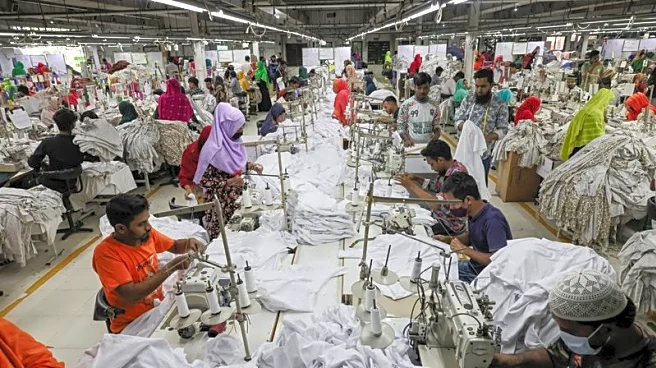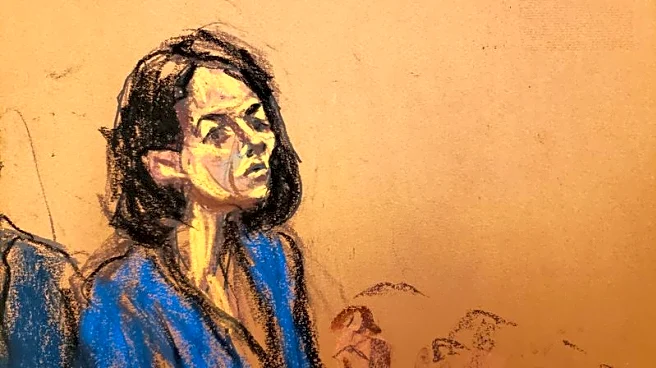What's Happening?
President Donald Trump hosted a 'Great Gatsby'-themed Halloween party at Mar-A-Lago on October 31, coinciding with a critical moment in the ongoing government shutdown. The event, titled 'A Little Party
Never Killed Nobody,' drew inspiration from the 2013 movie adaptation of 'The Great Gatsby.' Attendees included notable figures such as Secretary of State Marco Rubio, Ivanka and Tiffany Trump, and their spouses. The party occurred as federal judges ruled that the administration could not halt funding for the Supplemental Nutrition Assistance Program (SNAP) amid the shutdown. Judges in Massachusetts and Rhode Island ordered the use of $5.25 billion in contingency funds to continue SNAP benefits, which were at risk of running out for 42 million low-income Americans. The decision came after a lawsuit filed by nonprofits and mayors to maintain the program.
Why It's Important?
The timing of the party amidst the SNAP benefits controversy has sparked criticism, particularly from Democratic leaders. Critics argue that the event highlights a disconnect between the administration's actions and the needs of low-income Americans reliant on food assistance. The legal rulings to continue SNAP benefits underscore the program's critical role in supporting vulnerable populations during economic uncertainty. The situation also reflects broader tensions between the administration and Democratic leaders over government funding priorities and the impact of the shutdown on essential services. The continuation of SNAP benefits provides temporary relief to millions of Americans, but the underlying political and economic challenges remain unresolved.
What's Next?
The U.S. Department of Agriculture has been instructed to report on the status of SNAP benefit distribution by November 3. The administration's response to the court orders and the ongoing government shutdown will be closely monitored. Political leaders and advocacy groups are likely to continue pressing for a resolution to the funding impasse. The situation may influence public opinion and political dynamics as stakeholders assess the administration's handling of social welfare programs during the shutdown.
Beyond the Headlines
The juxtaposition of a lavish party with the potential cessation of SNAP benefits raises ethical questions about leadership priorities during times of economic hardship. The event may contribute to public discourse on income inequality and the role of government in addressing social welfare needs. The legal interventions to sustain SNAP benefits highlight the judiciary's role in safeguarding essential services amid political gridlock.












